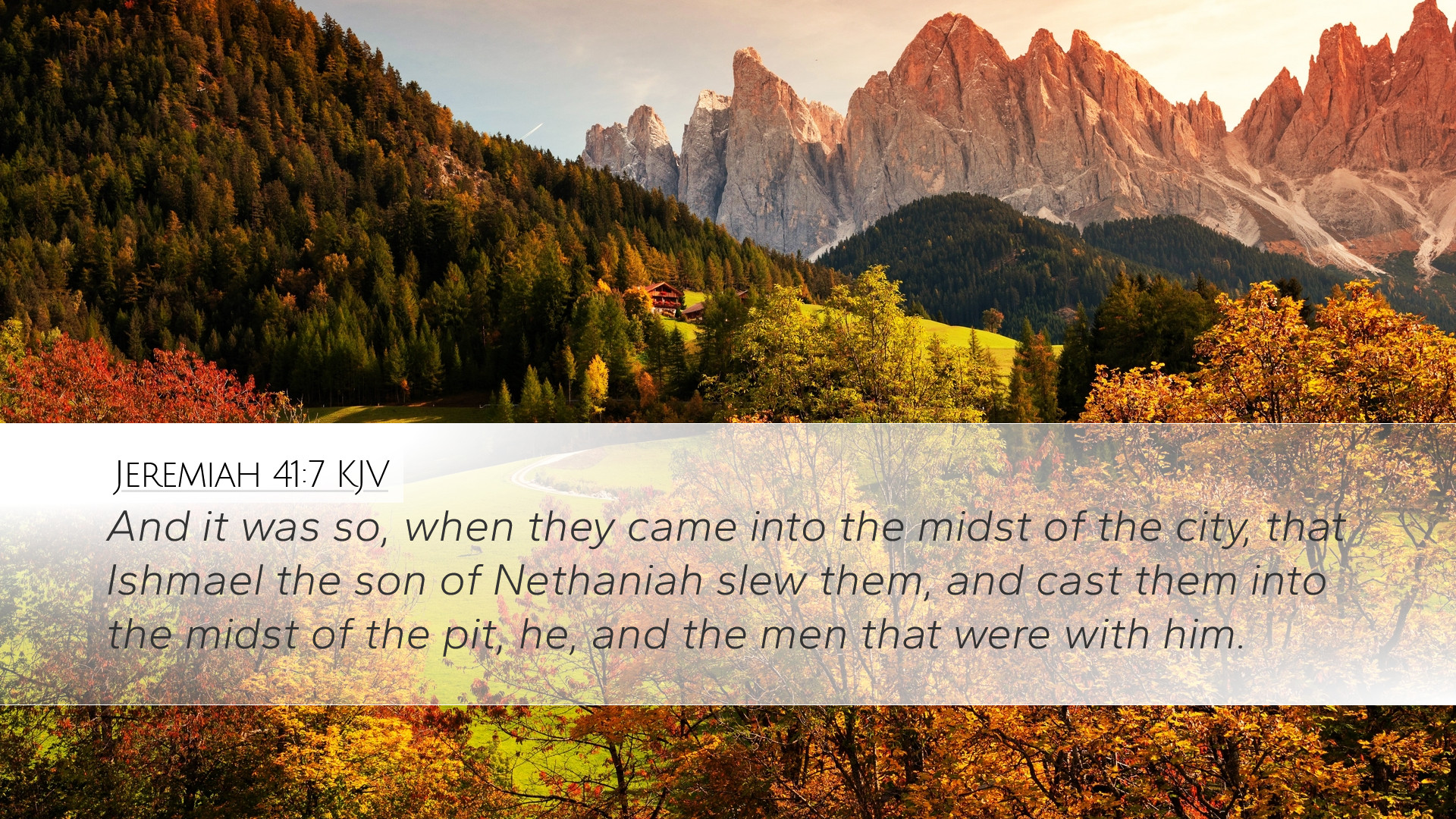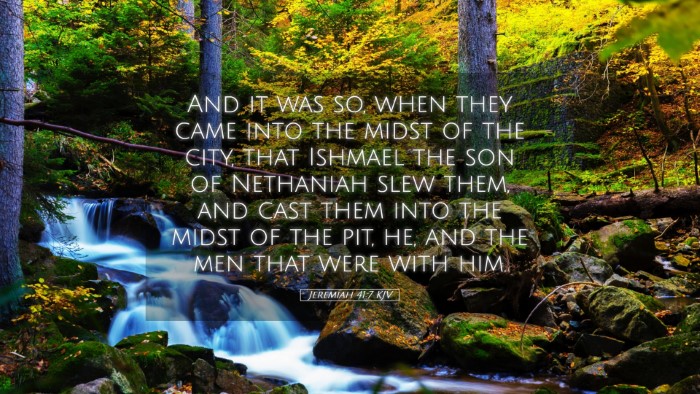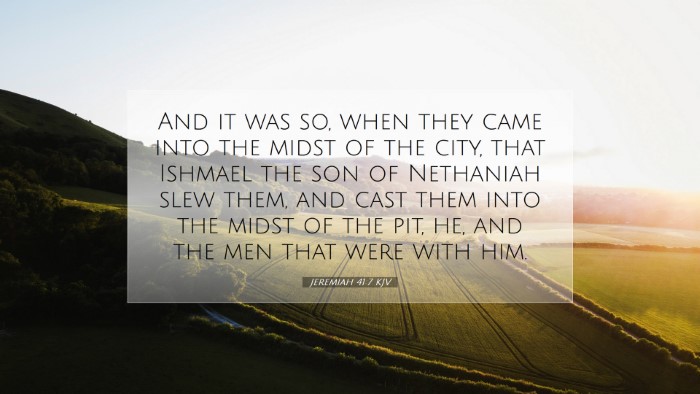Commentary on Jeremiah 41:7
Verse Text: "But when they came to Mizpah, they killed Gedaliah, whom the king of Babylon had made governor in the land."
Introduction
Jeremiah 41:7 marks a significant event in the aftermath of the Babylonian exile, illustrating the instability and treachery that characterized the political landscape of post-exilic Judah. Gedaliah, appointed as governor, was a figure of hope for the remnants of Israel, yet his assassination undermined the fragile order trying to be established.
Contextual Background
This verse occurs in the context of a tumultuous period for the people of Judah. The Babylonian conquest had left Jerusalem in ruins, and the few who remained were dependent on the leadership of Gedaliah. Understanding the socio-political dynamics at play is crucial for comprehending the significance of this event.
Historical Setting
- Post-Exile Challenges: After being taken captive, the people of Judah returned to find their land devastated. Gedaliah was appointed by the Babylonians to govern over the remnant, providing a semblance of authority.
- Factionalism: The diverse allegiances and factions within the remnant made the situation dangerous. Tensions among the people were palpable, particularly among those loyal to the exiles.
- Role of Gedaliah: As a representative of Babylonian authority, Gedaliah sought to maintain order and encourage the return of the exiled people. His assassination reflects the deep-seated mistrust and animosity that existed.
Commentary Insights
Matthew Henry’s Perspective
Henry emphasizes the tragic irony of Gedaliah's assassination. He notes that Gedaliah's rule was intended to bring peace and stability, but instead, it led to further chaos. Henry views this act as not only an affront to Gedaliah but also a rejection of God's providential arrangement for the remnant. The act demonstrates how the hearts of the people were still inclined to rebellion, even against their own interests.
Albert Barnes’ Commentary
Barnes offers a detailed examination of the motivations behind the murder. He points out that the assailants saw Gedaliah as a puppet of the Babylonians and believed that by killing him, they could restore their autonomy. Barnes stresses the role of Ismael, the leader of the assassins, highlighting how personal ambition often masquerades as patriotism in turbulent times. The murder reflects a broader theme of distrust not only in human leadership but also in divine provision.
Adam Clarke's Analysis
Clarke provides a theological lens through which to view the historical moment, suggesting that Gedaliah's death signifies a failure to heed the warnings delivered through the prophets. He notes that this act was symptomatic of a larger rebellion against God's plans for restoration. Clarke challenges readers to reflect on how societal disarray often mirrors a collective disobedience to divine commandments.
Theological Implications
Jeremiah 41:7 invites deeper reflection on several theological themes:
- Divine Sovereignty: The verse raises questions about God’s control over human events. Despite the seeming chaos, God’s purposes for Israel remain intact, suggesting that human actions do not thwart divine leadership.
- Corruption of Leadership: Gedaliah's murder is a reminder that godly leadership can be met with hostility. This theme remains relevant today as leaders within faith communities often face opposition, even from those they seek to serve.
- Hope and Restoration: The narrative reflects not only despair but the ongoing hope for restoration. The demise of Gedaliah was not the end, but rather part of the larger biblical narrative of redemption, pointing ultimately to Christ.
Lessons for Today
For pastors, students, and scholars, Jeremiah 41:7 presents several lessons:
- The Nature of Human Sin: This passage reminds the reader of the destructive capacity of sin, especially in relational and communal contexts. It encourages self-examination of motivations in leadership.
- The Importance of Leadership: Effective and godly leadership is essential for communities, especially in post-crisis situations. Pastoral care and wise guidance can restore hope and stability.
- Trust in God’s Plan: Even when circumstances appear grim, believers are called to trust in God’s sovereignty. This verse serves as a reminder of the larger context of God’s redemptive work in history.
Conclusion
Jeremiah 41:7 is a poignant reminder of the complexities of human leadership and the persistent reality of sin. Through the insights of public domain commentaries, we glean a fuller understanding of this critical moment in Israel’s history, as well as its implications for contemporary faith communities. It encourages a renewed commitment to trust in God’s sovereign purpose amidst human frailty.


